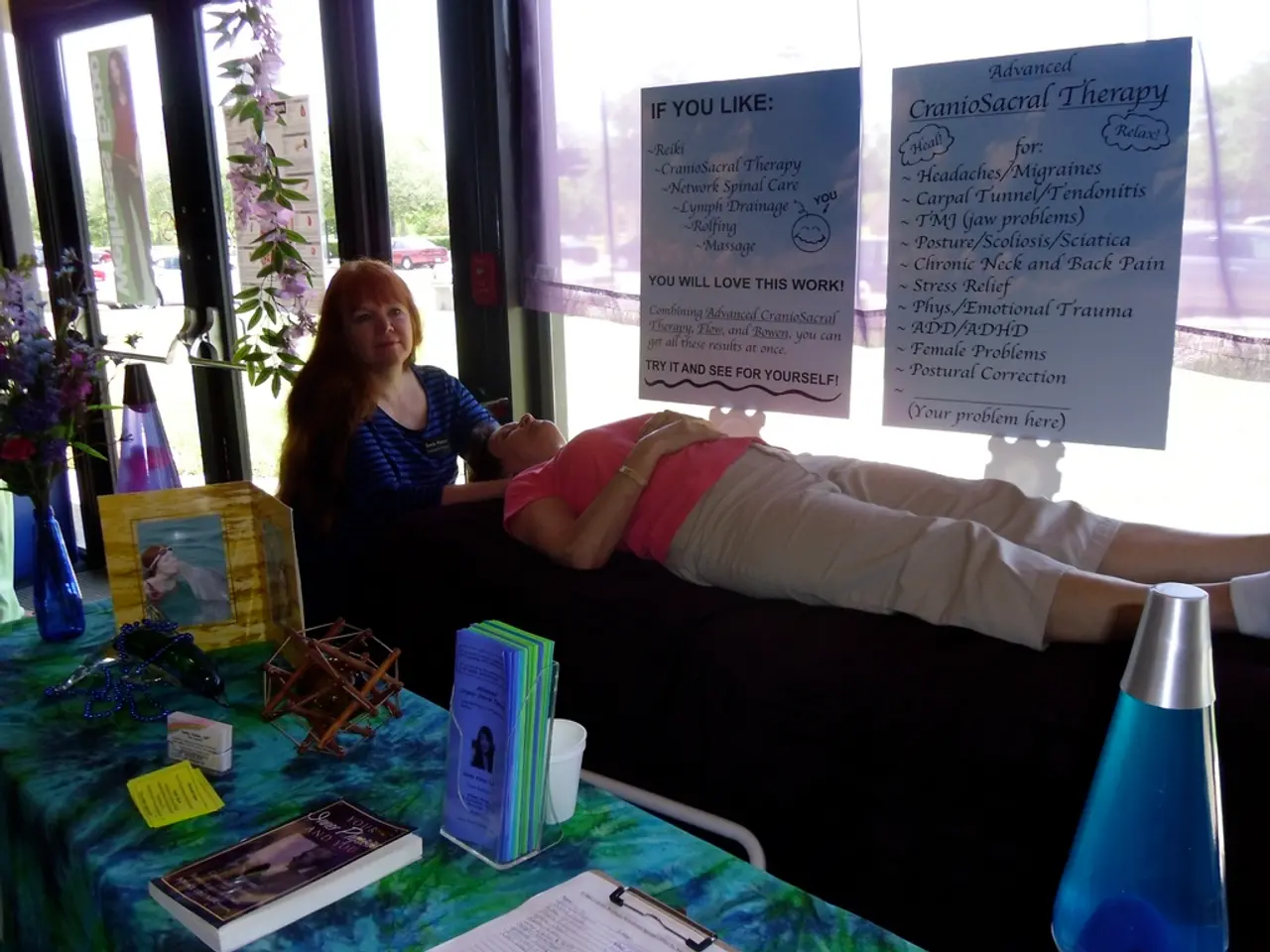Specialist in Suicide Prevention Expresses Optimism: "Numerous Suicides Might Be Prevented!" - Expert Advocates for Suicide Prevention: "Numerous Suicides Could Be Averted!"
Addressing the sensitive issue of suicide and its prevention necessitates a blend of individual resilience and community support. Here are proven strategies that can help both individuals and communities approach this challenging subject effectively:
Empowering Individuals
Building personal resilience is key. This can be achieved by developing coping and problem-solving skills, such as learning mindfulness, managing stress, and practicing emotional regulation. Seeking support from trusted relationships is also crucial, offering emotional support when facing distressing topics like suicide [1]. Accessing professional help from mental health care providers adds another layer of comfort and guidance [1][5].
Strengthening Communities
Community-driven strategies also play a vital role in reducing the risk of suicide. Encouraging cultural and religious beliefs that discourage suicide, fostering supportive community networks, and making mental health care readily available are all important steps [1]. Direct, empathetic communication with at-risk individuals can be life-saving. Caring letters, for example, have proven to reduce suicide rates, particularly after a crisis, by conveying genuine concern and friendship [2].
Education and Training
Implementing suicide prevention training for professionals and community members increases awareness, improves early detection, and enables timely intervention. Utilizing screening tools like the Columbia-Suicide Severity Rating Scale (C-SSRS) can help identify individuals at risk for appropriate support [5].
Clinical Approaches
Removing access to lethal means is a critical safety precaution [1][5]. Evidence-based interventions, such as cognitive-behavioral therapy (CBT) and dialectical behavior therapy (DBT), can effectively manage suicidal thoughts and behaviors [5]. In some cases, medications like SSRIs, mood stabilizers, or antipsychotics, under the supervision of qualified professionals, may also be necessary [5]. When needed, referring individuals to specialized care ensures they receive comprehensive care [5].
Emotional and Social Support
Regular, caring check-ins via letters, messages, or in-person meetings can significantly impact individuals recovering from a crisis, helping them feel valued and connected [2]. Creating safe spaces for open discussions about mental health encourages help-seeking and early intervention [3].
In conclusion, suicide prevention is achievable through a synergistic approach combining individual resilience, supportive relationships, evidence-based medical care, and community education. These multi-faceted strategies help reduce the burden of this sensitive topic and save lives [1][2][5].
- To enhance individual resilience, it's crucial to learn and practice coping skills such as mindfulness, stress management, and emotional regulation, while also accessing professional mental health care and seeking support from trusted relationships.
- Strengthening communities can be pivotal in preventing suicide, through encouragement of cultural and religious beliefs that discourage suicide, strengthening supportive community networks, and making mental health care readily available, as well as implementing direct, empathetic communication with at-risk individuals.







